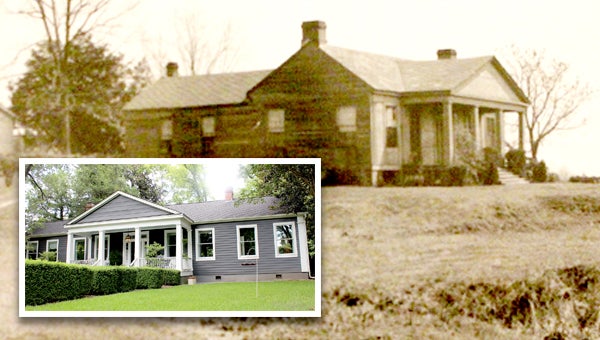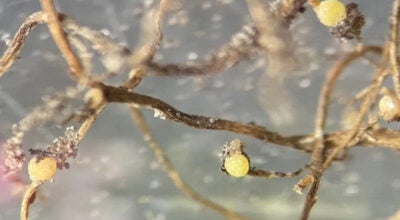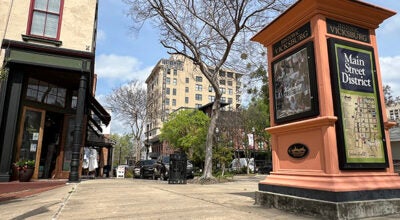Home’s namesakes moved from home to caves during Siege
Published 2:04 pm Monday, November 9, 2020
The Futrell House, a Greek Revival house, was designed by R. Baptist McCombs, an architect from Tennessee, in 1836 for Robert Warren. Warren sold it to Robert Muir, who owned a number of dry goods businesses in Vicksburg, in that same year.
In 1852, Ransom Augustus Futrell, a riverboat pilot and a son-in-law of McCombs, bought the house for his wife, Mary, and their 10 children. McCombs also lived in the house.
Futrell was born in Warren County in 1819 and was licensed as a pilot for the Confederate government in 1861.
During the Siege of Vicksburg, the family moved into a cave on the east side of the house.
When the house was commandeered by the Union Army following the siege, the family moved to Ballground Plantation, north of the city. The house was occupied by Maj. David S. Tallerday, a naval commander and his troops camped in the yard.
In 1863, an epidemic of Typhoid Fever broke out killing a number of soldiers, who were buried in the yard of the house. The bodies were moved to the National Cemetery in Vicksburg after the war.
The disease also decimated the Futrell family, killing all but Mary, Sallie and Charles.
After the war, the Futrells continued to live in the house. Sallie married Daniel F. Cathell and they had one child, Leila. Cathell died of “congestive fever” on July 14, 1875, and Sallie later married Peter Miller.
Charles died at the house on April 25, 1881, of “hemorrhage of the lungs.”
On Jan 24, 1894, the Vicksburg Evening Post reported that “entertainment will be given at Mrs. Futrell’s on Fort Hill on Friday, the 26th by classes 3, 4, 5, 6, and 8 of Christ Church Sunday School. The entertainment will consist of a candy pulling and an Owl Party for the children from 3 to 5 p.m., and a grown people’s party at night. There will be music and refreshments, and everything will be done to make the occasion one to be remembered pleasantly. The price of admission is 10 cents for children and 25 cents for adults. The Post returns thanks for an invitation.”
Mary died on Feb. 9, 1900, leaving the house to her daughter, Sallie Miller. Sallie’s daughter, Leila, married Clyde Colvin in the house on Dec. 19, 1900.
The house remained in the family until about 1947 when it was sold to Dr. Joseph Moore, an orthopedic surgeon with the Vicksburg Hospital. Moore, a native of Petersburg, Va., received his medical degree from the Medical College of Virginia in 1929 and practiced in Washington, D.C. for a while.
He moved to Vicksburg after World War II and on March 9, 1946, the Clarion Ledger reported that Joan, Moore’s Australian “war bride,” was among other “war brides” brought from Australia to Mississippi to be reunited with their American husbands. Moore quickly became associated with others in Mississippi who were administering to children afflicted by Cerebral Palsy.
He was instrumental in helping to organize the Mississippi Association for Aid to Spastics, which, in 1947, transformed the east wing of the charity hospital in Jackson into a hospital and school for children with the disease. Moore was the chief physician in charge of the facility where they provided adequate care, training, and rehabilitation.
Moore helped to set up facilities in the Vicksburg Hospital for the care of Cerebral Palsy victims and also for those patients afflicted with Polio.
He added rooms to either side of the front block of his house, constructed ramps for wheelchairs and had a swimming pool built at the Futrell House so that he could help rehabilitate patients. The Moores had one daughter, Muriel, who graduated from Beaver College in Glenside, Penn. and married John Kratz, a lawyer.
In 1976, the Moores sold the house to Ronnie Hudson and there have been several owners since this time.
— Nancy Bell, Vicksburg Foundation for Historic Preservation






